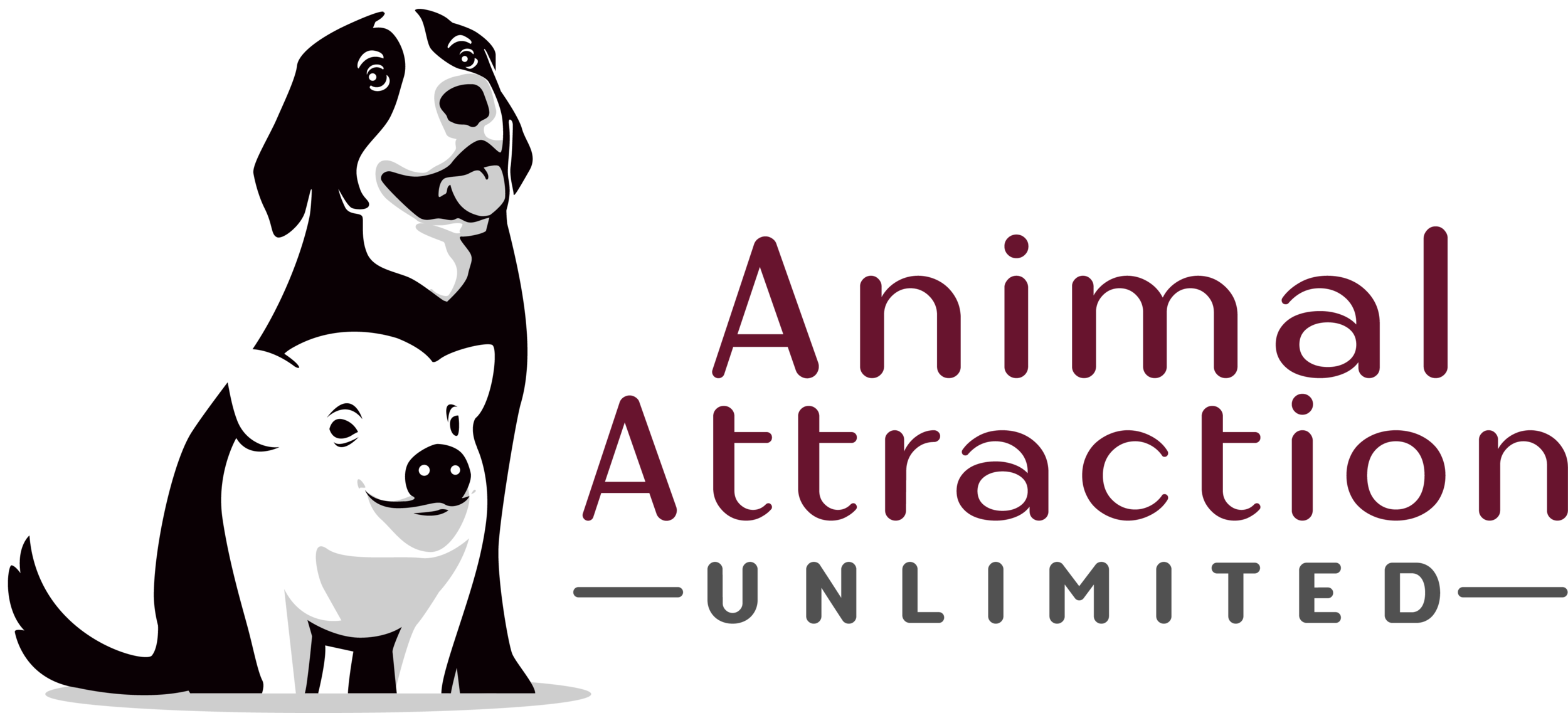Vocal Inflections and How They Affect Your Dog’s Responses
Have you ever heard the phrase "It's not what you say, it's how you say it"? Well, that phrase has never been more true than when it is applied to how we communiate with dogs. Human beings rely heavily on words and vocal inflections to determine the meaning behind what other people are saying. Dogs, on the other hand, rely more on vocal inflections and body language. Today’s topic is about not only the words we use but how we say them. The tone of our voice and the inflections we use can help determine whether a dog will respond the way we want them to.
For example, if I want my dog to do an active behavior, like come when called, the inflection in my voice will go up or sound inviting. But if I want my dog to do a calm behavior like stay or down my voice is calm to coincide with the level of activity I want from the dog. Along similar lines, we want to make sure that we don’t sound threatening to the dog. When we think of the word “command” for some reason we think we must sound authoritative or threatening in order for our dog to do what we want them to do. However, that couldn't be further from the truth. As a matter of fact, sounding threatening and authoritative could actually get us the opposite of what we want.
Think of it this way, if your boss called you into their office and they did it in an agitated or angry tone of voice would you be happy to respond or would you be anticipating some bad news? On the other hand, if your boss sounded like they were in a good mood and called you into their office you wouldn’t be quite so worried and would respond more quickly. It’s the same way with dogs. If we sound angry or upset a dog is less likely to respond to us and may even end up doing some avoidance behaviors like sniffing the ground, turning their head away, not making eye contact, basically everything that makes us think they are ignoring us. And of course, when we think our dog is ignoring us we get even more upset which leads to more avoidance behaviors on the dog’s part. So, think about how you are saying things and how your dog is taking it if they aren’t responding the way you wish them to.
In addition, when you praise your dog your praise must be sincere. Because dogs go on inflections and body language more than the actual words we are saying, if you are telling your dog “good boy” with a scowl on your face or a neutral tone in your voice the fact that he is a good dog is not the message he is receiving. This isn’t just about sounding neutral or scary to your dog it can also be about conveying anxiousness or fear. Quite often when our dogs are nervous we default to saying, “It’s okay it’s okay” but were saying it with the whine in our voice, so if you took out the words and listened to the intonations you would hear a whine and that is what your dog is paying attention to. From your dog’s point of view, you are whining about the situation as well. That does not convey confidence about the situation to your dog.
Most of the time dogs are trying to figure out what we want them to do by the tone in our voice and our body language. Imagine yourself in a foreign country where you don’t understand the language and you are trying to comprehend what someone is saying to you strictly on their tone of voice and their body language. That is exactly what happens with your dog. So, if your dog isn’t responding the way you’d like, take a look at how you are saying it and make adjustments accordingly.
